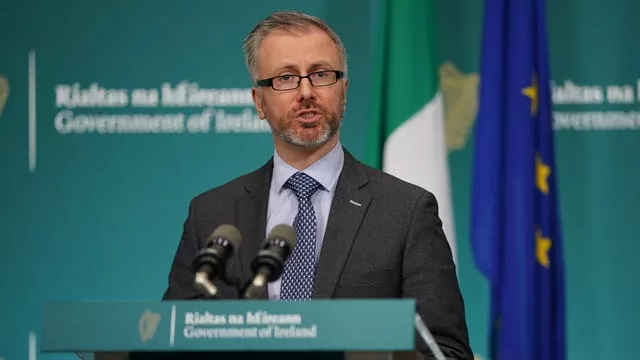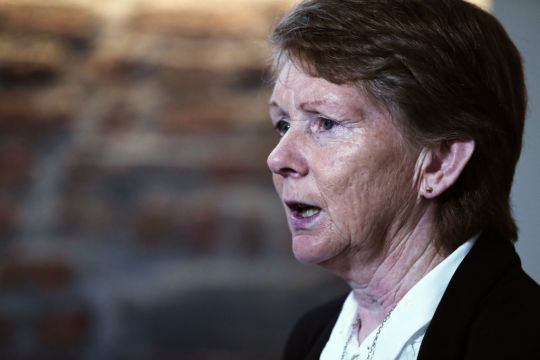Historian Catherine Corless has said she is “relieved” the Government has given the green light to the excavation of infant remains at the former mother and baby home in Tuam.
The Government approved a proposal on Wednesday to establish an independent office to oversee the exhumation.
The work at the burial site – by the Office of the Director of Authorised Intervention, Tuam – will involve exhumation, analysis, identification if possible, and re-interment of the remains at the site.
Ms Corless’s research revealed that 796 babies and young children were buried in a sewage system at the Co Galway institution between 1925 and 1961.
She said she was “delighted” with the Government’s decision.
“It’s more than welcome,” she told RTÉ’s Drivetime programme. “We have to wait until September… for the Oireachtas to pass it as well but I’ve no doubt that will happen and a director will be chosen to oversee the exhumation.
“It is good news for survivors and for people who have family in that sewage facility so it is indeed a good day. I’m very relieved it’s come to this.
“It’s been very long journey. We couldn’t give up. It had to be done so we are very relieved indeed.”
Minister for Children Roderic O’Gorman said affected families had waited a “long time” for this development.
He said he intends to appoint a director of the independent office in the autumn and start excavation “as soon as possible”.

Mr O’Gorman said his proposal for an intervention at the Tuam site under the Institutional Burials Act and a draft order directing intervention will be laid before the Houses of the Oireachtas for approval.
“These are the final steps necessary in order to appoint a director and start the excavation in Tuam,” he said.
“Affected families, and indeed the people of Ireland, have waited a long time for this.
“If approved by the Houses (of the Oireachtas) I will appoint a director in the autumn with a view to starting the excavation as soon as possible.”
It follows the signing into law of the Institutional Burials Act 2022 earlier this month.
The Act, which provides the underlying legislative basis for the intervention, allows the Government by order to direct an intervention at a site where manifestly inappropriate burials of people who died in residential institutions took place.
The Government may make an order when the criteria set out in the legislation are met. Ministers confirmed on Wednesday that they were satisfied that the criteria are met at Tuam.







